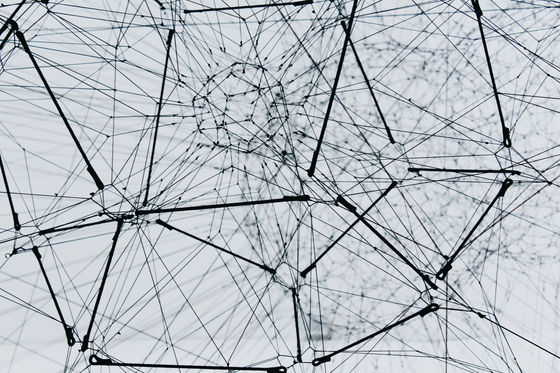What are the 'network effects' that you need to know to make your life run smoothly, and the 'crossroads of life' to build excellent relationships?

by
Invisible power `` network effect '' that guides life to humans is working, and considering these, you should correctly choose `` the seven crossroads of life '', a product designer with a venture company NFX Says James Currier , who works.
Your Life is Driven by Network Effects
https://www.nfx.com/post/your-life-network-effects
People tend to think that they choose everything for themselves, from the land they live in, to whom they date, to their jobs, to the clothes they wear. However, Curie says that in reality all options are much more constrained than humans think, and the identity of the invisible power that constrains this option is the `` network effect '' .
The network effect is the power that a network of human connections in life creates, according to Currier, `` the power of hundreds of small interactions that do not necessarily lead you to the path you want. ' The network effect also worsens over time, and the longer the community that builds human relationships, the longer the network effect will shape the fate of the affected person.
For example, if a person is relocated to city A, the effect might be that a colleague working for the same company would have to relocate from city A to another city. In this way, it seems that each person freely chooses 'where to live', but in reality, there are often cases where 'the choices are limited due to network effects' . Similarly, personal income depends on how much a co-worker earns more than what they do at work, and many of the social phenomena are network effects, as national GDP is also heavily dependent on other countries' GDP. You can see that it is closely related to

by
In a network made up of human connections, nodes refer to 'humans' that are members of the network. Nodes can communicate anything from ideas, capital, work, status, aspirations, language, expectations, affirmations, criticism, and physical space. The communication frequency (interchange) between nodes also varies greatly depending on the physical distance, intimacy, reliability, and similarity between nodes.
And, of course, each node has an advantage. For example, there are ' Preferential attachments ' that should prioritize communication over other nodes, such as being financially rich or gaining status or reputation. In most cases, the attachment that works as a priority attachment is 'attachment', and when there are nodes with the same conditions, it seems to be the case that the one with the stronger attachment tends to give priority. This is also known as the ' Matthew effect '.

by
If you want to have one conversation at the dinner table, the appropriate number is '6' and the maximum is '8'. This is based on the number of links (bidirectional conversations) that exist between the nodes (people) that make up the conversation group. For example, if you talk with six people, the number of interactive conversations will be fifteen. On the other hand, if you talk with seven people, the number of two-way conversations will be 21 and it is clear that suppressing all conversations is more difficult. As the group grows, the number of links changes exponentially, so the more people in the network, the more the individual in the network will be affected.
Individual networks have different constituent nodes and different relationships between nodes, so the nature of the networks differs greatly. The network has the characteristic that the formed 'depth' and 'speed' change when the following five conditions are satisfied.
Interact with frequently interacting contexts with new groups of people
・ The number of highly redundant relationships in your own network will increase.
・ It is time to be open to changing or evolving your identity
・ How dense the proximity is in geographical and network contexts
・ Holding something difficult or worried together
It is said that the first place of employment after high school, university, or social affairs can become an important network in life because it fulfills many of the above five factors.

by
There are three levels in a friendship network. Based on 'connections with digital people' based on connections on the Internet, such as 'people involved on SNS', actual human relationships such as family, school, workplace The three are based on the “connection between humans” based on “physical connection” with the physical connection that works in the same building and neighbors.
The number of nodes (people) that make up each network and the strength of connections (relationships) between nodes can be set according to the “ number of dambars ”. 'Dumbbar count' is a cognitive limit on the number of people at which a person can maintain a stable social relationship. Curie gives examples of close friends, such as 'five' family, '15' intimate friends, '50' friends, and '150' acquaintances. He points out that if the number of members increases, the network will not function properly.
And Curie says, 'Think of (the nodes that make up a network) what you see in your dashboard as you navigate your life. The value that a node gives you is all about factors like probability, reward, cost, friction, You can check the value provided by the network (connection) .You have determination and free will, and each decision item is displayed by numbers, so the best possible decision from all aspects Can be lowered. '

by Marvin Meyer
In addition, the choice of seven crossroads in life is also important in forming a network that will make life smooth. `` Given the impact of the network effect on your life, it is important to keep in mind the effects of the network effect itself when making important decisions at the seven crossroads, '' Curie said. You.
◆ Crossroads 1: Born Family

by
The only crossroads you cannot choose is your own family. The family is the fundamental layer in the network formed by individuals, and the frequency, speed, and relationships between nodes tend to be stronger than other networks.
The friction that arises when interacting between families is so small that the family network can have a significant impact on life. Most people tend to choose close to this family network when making important life decisions. Therefore, if you are aware of where you are going in your life, you should be aware of the effects of family networks, Curie said.
◆ Crossroad 2: High School

by
High school is a stage where youth plays a huge role in shaping your identity and worldview. Therefore, the network formed when high school students (high school network) is important because it has a correlation with academic achievement and university entrance.
The following four are important when choosing a high school.
・ High school size
According to the 'high school size', the network formed by graduates will grow, and the possibility of having a significant impact on networks that will be built in the future, such as universities and employment, will increase.
・ School diversity
If the 'school diversity' is high, the types of nodes that make up the network will be rich.
・ Alumni affinity
The higher the graduate affinity, the stronger the links between nodes, and the higher school network becomes a more valuable network for graduates.
• How important is academic success to outstanding students?
'The more positively the school's popularity correlates with the student's academic success, the more short-term social incentives will be aligned with what will be useful to you in the long run,' says Currier.
If there is no choice about which high school to attend, 'who will be friends with' will be important.
◆ Crossroads 3: University

by
Just as in high school, colleges can build networks that matter in life. Nevertheless, universities choose far more options than high schools. And university networks are formed over a longer period (four years) than high school networks, so it is possible to create stronger networks. University networks can also have a positive effect on networks formed after employment, as people from the same university network are more likely to work in the same industry.
In order to form a good university network, it is necessary to consider the following points for the university where the university will go. Note that “school size” and “affinity with graduates” are as important factors as when high school was selected.
-Where do university graduates live?
The choice of university is also deeply related to the choice of regional network. For example, if you go to a university in California, your friends and jobs will be choosing from this area. In fact, when Curie graduated from college and started job hunting, many of his classmates were affected by the university network and were looking for employment in the area where the university was located.
・ What kind of industry do university graduates work in?
At Trinity College, where Curie's friend went to college, many of her graduates worked at financial institutions in New York or Boston, and her friends followed the same path. 'I chose this job not because of his unique abilities and interests, but simply because of the network effect,' Curie said. My friend said she chose the best option from her network and ended up working for a financial institution.
・ Can you be involved with other students in nature?
It is also important that the students who attend the university you are studying in have the desires, lifestyles and interests you want. No matter how strong the network is, it cannot form a network unless it is actually combined with other nodes, and the inability to be interested in each node can be a fatal problem.
◆ Crossroads 4: First job

by Marten Bjork
The first place you find employment after you are a student is also important in forming a network that will make your life easier. At work, you meet with your colleagues every day for more than eight hours, and if you do poorly, you may interact more with your colleagues than your family. In general, they choose a job based on their income, interests, skills, etc., but Curie says, 'This is all wrong. At the first job, you should work with someone who wants to mimic their career path. ' This is because the first place to work should focus on skills sets that will be a weapon throughout your career, rather than on job content, income, and background.
So when deciding on a job, you can ask yourself, 'Would you tell me what job you want to do every day?' 'Was it the best offer in terms of income?' , Can I work in a luxurious office with free catering? 'And ignore the following:
・ Is this job done in the right city? Where is the city you want to live in for the long term?
・ Can you like and respect your colleagues? And can you be liked and respected by your colleagues?
・ Do you want to be like your boss someday?
・ Are career aspirations consistent with colleagues?
・ Do you want to do the best job?
・ Are there strong culture and friendship?
• Do you have the opportunity to appeal to your company's colleagues to build your network?
• Are employees proud of the company and brand? Are you seeking each other outside of work?
・ Is there any politics in the workplace that threatens to build a strong network?
• If a startup, is there a strong potential defense against competitors, especially network effects?
◆ Crossroads 5: Partner selection

by
Marriage, or choosing a partner in life, is one of the most important decisions in life. This decision can be a source of great joy and suffering on a personal level. It is also very important in terms of networks, as networks formed by others will overlap with your own networks. However, when marrying a close friend from the beginning, the friend / acquaintance of the marriage partner is often a friend / acquaintance for himself, which is not particularly effective in forming a network.
Of course, marriage between close friends is no problem, but if you want to find a new partner, Curie recommends that you take care of the following:
・ Which of your acquaintances are most likely to know the most?
In human relationships, there are people who have many acquaintances. Such a person is useful to meet a new person that he or she does not know at all. However, even though these people have large faces, the connection between the people is weak, and it is often said that they find joy in introducing people.
・ Are friends with friends?
If you're serious about the future, it's very important that you get along well with your friends, and if you have a good relationship, it's more likely that the relationship will last longer.
・ Are friends with your family?
As with your friends, being able to make friends with your family is also an important factor.
-Are you on the same geographic network?
Geographically close relationships can be a huge burden for couples, so being close geographically is also an important factor.
-Is there a blowback if things go wrong?
For example, if you fall in love with a colleague, you need to consider the risk that you may meet regularly at work or privately after you leave. Curriers point out, 'If you develop into a divorce, you risk losing some of your network,' he said. 'This risk should not be underestimated.'
◆ Crossroads 6: Where to live

by Breno Assis
Where to live is one of the most important decisions that will affect your family's employment and study destination. Curie says that where you live is `` determining your acquaintance and greatly affecting the richness of life and access to information, '' Currier says, by committing to geography and developing a network, everything necessary Point out that their experience and access to resources will improve.
Some important points when deciding where to live are:
・ Are people in this town like me?
It is said that you should choose a land where people who have characteristics similar to the city and who have similar characteristics to you live.
・ How long will I stay in this land?
If you move, your existing network will be reset. This is like resetting a bank account, says Currier, and emphasizes the importance of staying in the same land for a long time.
・ How important is your career to yourself?
Because GDP scales nonlinearly with the size of the city's population, incomes increase faster in urban areas than on other lands. Also, in urban areas there is the advantage that you will have more opportunities to meet the industry's top talent, but you should ask yourself if you like these advantages.
・ How much can you enjoy at a fast pace?
Everything goes fast in big cities. People walk fast and have many opportunities. This is an unavoidable consequence of increased network size and density, but it is also important to consider the land where you can live depending on whether you can enjoy it.
・ How much can you enjoy meeting new people?
As in the above two, it is also characteristic of urban areas that there are many new encounters.
◆ Crossroads 7: Re-evaluation
The network effect continues to grow over time since the network was born. However, it is, of course, possible to add and integrate networks and change the impact of network effects. The easiest way is to change the person who is the building block of the network.
Conversely, if your life is good and satisfactory, Curie recommends understanding how important the network is and doubling the relationship.
Related Posts:
in Note, Posted by logu_ii







